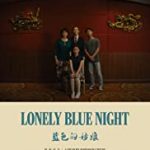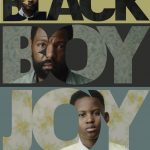When I work with writers or evaluate pieces for the Sundance Lab, FIND and Screen Queensland one of the questions I often ask myself is, “What does it all mean?” A lot of the time once I’ve finished a script I can’t answer this question and am left searching for the point of the story. This is not what you want to happen. A story without a clear theme causes a reader to pass and leaves the audience wondering why they wasted their time. Once again so not what you want to happen.
But theme is notoriously difficult to nail down and often doesn’t reveal itself to the writer until they’ve written a draft or two. This is par for the course and it can take awhile to figure out what you want to say and why you’re writing this particular story. But at some point you need to make a decision about what your story is really about and make sure the theme is clear.
One way to tackle this is by careful plotting of the protagonist’s arc. How so? Well, what the protagonist learns by the end of the piece tells you what your story is really about.
• For example in The Descendants we’re drawn into the story to see if Matt (George Clooney) will track down and confront his dying wife’s lover Brian (Matthew Lillard) but we’re more connected to whether or not he will be able to reconcile her betrayal. His final speech to her shows us he’s been able to do this and tells us the story is about forgiveness.
• In The Artist we’re invested in the film to see if George (Jean Dujardin) will be able to revive his career but what we really want is for him to put aside his ego and embrace change. His decision to shoot a “talkie” with Peppy (Berenice Bejo) tells us he’s been able to do this and establishes the theme as the danger of hubris.
• For Win Win the conflict centers around Mike’s (Paul Giamatti) decision to have himself illegally appointed as his aging client’s (Burt Young) guardian moving him to a senior’s facility against his wishes. This creates a string of problems that invest us in our desire to see Mike come clean and right the situation. The fact that he does tells us the story is about the importance of honesty.
• During Midnight in Paris we’re drawn through the story to see Gil’s (Owen Wilson) magical travels in time but what we really want is for him to come to terms with his life in the present. When he turns down Adriana’s (Marion Cotillard) request to stay permanently in the 1890’s we know that he’s done this and that the theme of the story is that despite the allure of the past it’s better to accept the present.
• While watching The King’s Speech we want Albert (Colin Firth) to be able to speak in public without embarrassment but what we really want is for him to become more confident, come out from behind his father’s shadow and embrace his role as King. The fact that he eventually does this tells us the theme is learning to accept and believe in yourself.
• In Up were invested in the movie to see if Carl (Ed Asner) will make it to Paradise Falls but what we really want is for him to reconcile the death of his wife and befriend Russell (Jordan Nagai). When he finds Ellie’s note in his scrapbook and goes on to rescue Russell from Muntz (Christopher Plummer) we know that while the piece has been a fun adventure it’s really about overcoming loss, reaching out, and embracing life.
These examples show how you can use the protagonist’s arc, specifically their epiphany, to articulate what the story is really about. So in thinking about theme you can look to where you want your protagonist to go and how you want them to change over the course of the story. This will point you in the direction of your theme and make sure your story has a reason to be told.


